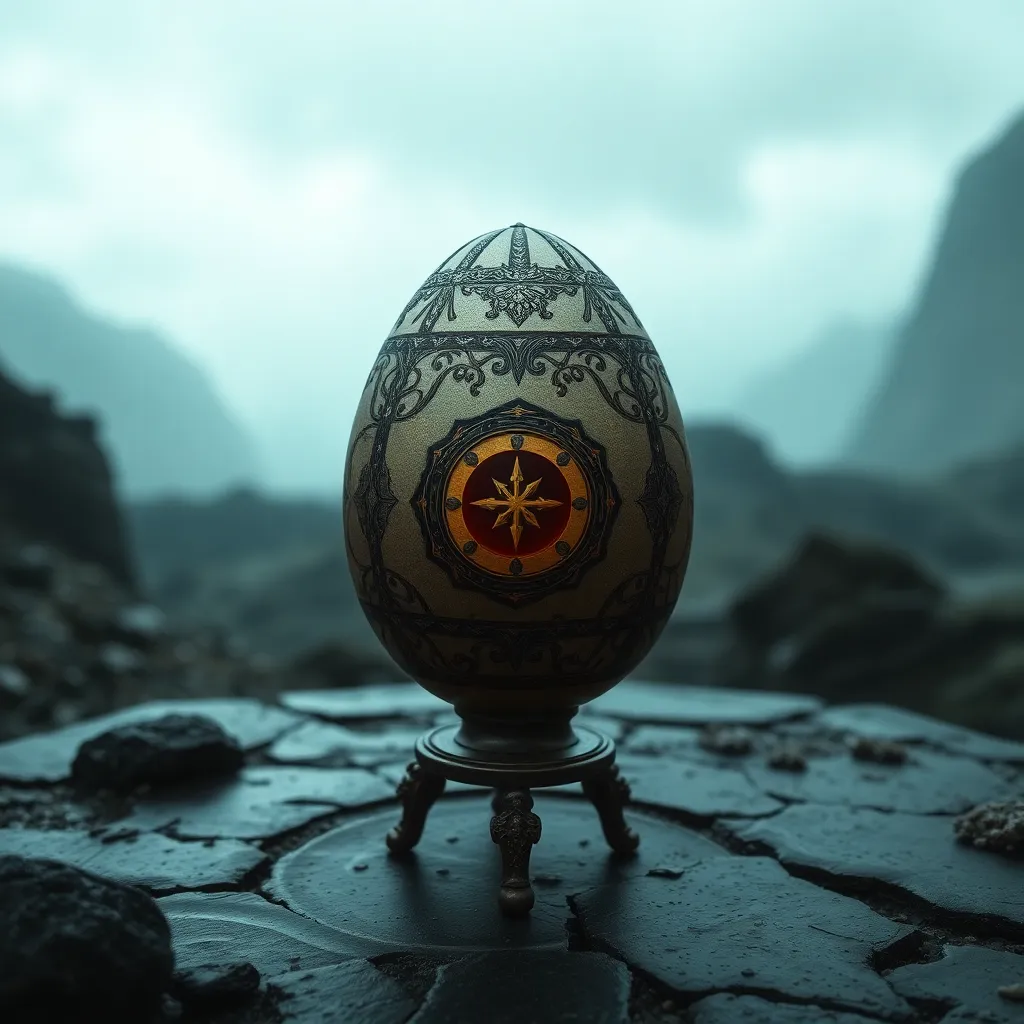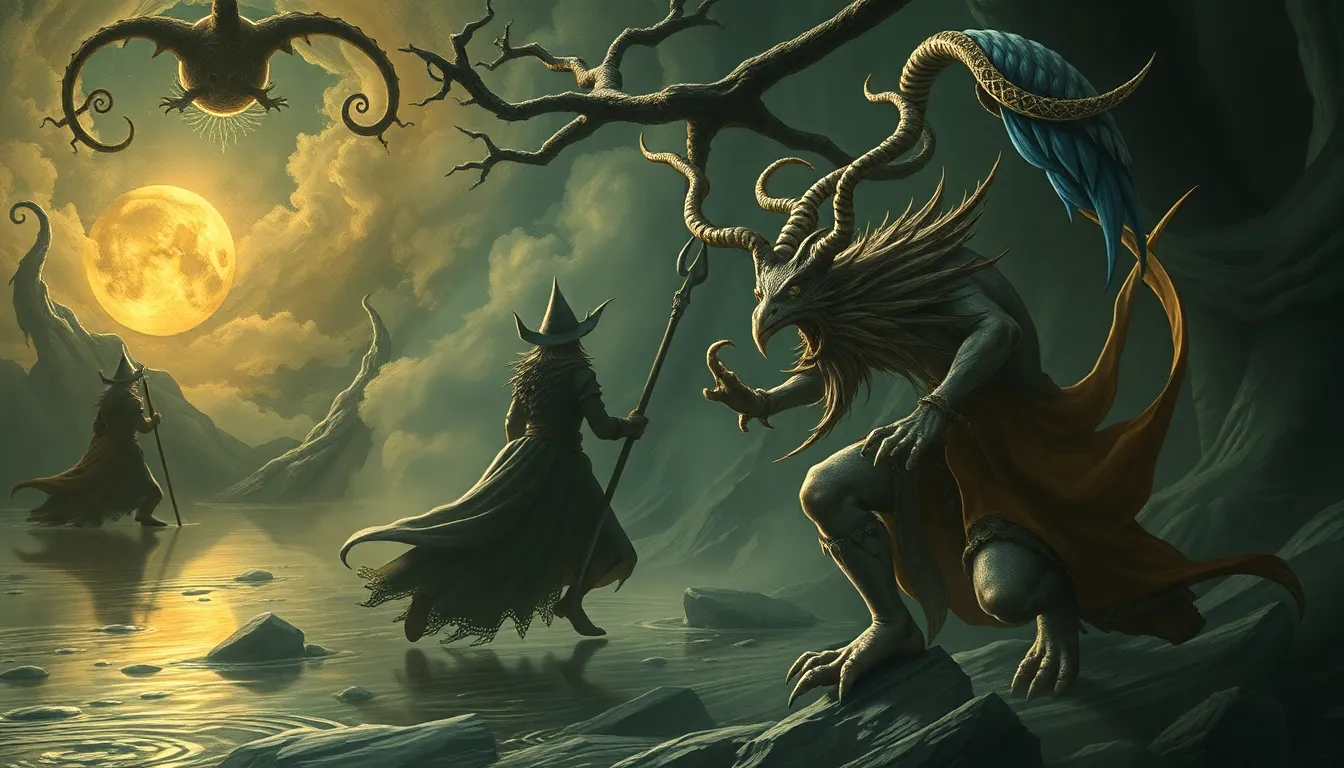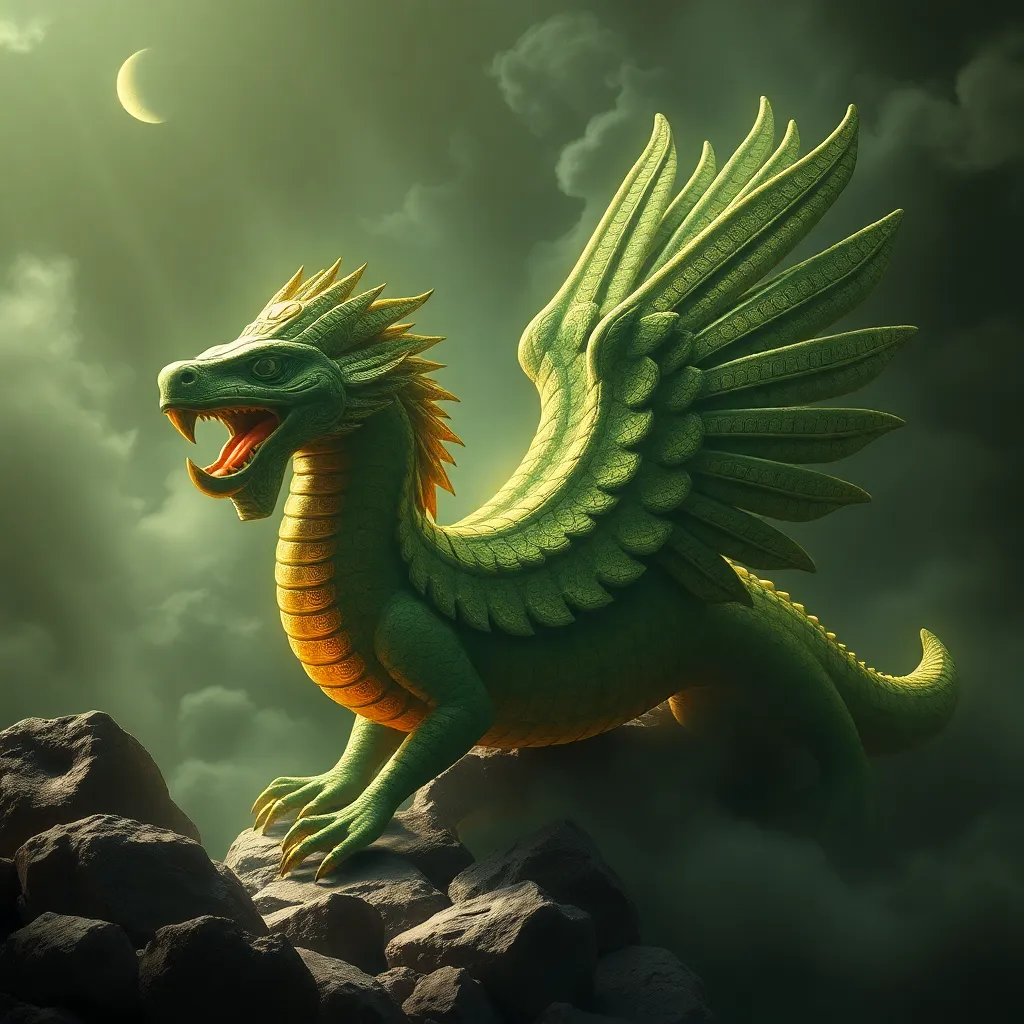The Riddle of the Egg: Deciphering Koschei’s Secret to Immortality
I. Introduction
Koschei the Deathless is a prominent figure in Slavic folklore, often depicted as a powerful and malevolent being whose quest for immortality leads to various narratives filled with adventure and moral lessons. His character embodies the complex relationship between life and death, bringing forth themes that resonate deeply within human experience.
At the heart of the legend lies the mysterious egg, a symbol that holds the key to Koschei’s immortality. This egg, often hidden away and protected by various enchantments, serves as a crucial element in understanding the nature of life, death, and rebirth.
This article aims to explore the themes of immortality and symbolism surrounding Koschei and his egg, examining the significance of these elements within Slavic mythology and their implications for our understanding of human existence.
II. Who is Koschei the Deathless?
Koschei’s origins can be traced back to ancient Slavic mythology, where he is often portrayed as an evil sorcerer or a powerful spirit. His name, “Koschei,” is derived from the Slavic word for “bone,” emphasizing his association with death and the skeletal remains of the departed.
Some key characteristics and attributes of Koschei include:
- Immortality: Koschei cannot be killed by conventional means, as his life force is hidden away.
- Malevolence: He is often depicted as a villain who kidnaps princesses and opposes heroes.
- Cunning intelligence: Koschei is known for his cleverness and scheming nature, often using trickery to achieve his goals.
In modern interpretations, Koschei’s character has evolved, appearing in various forms of literature, film, and other media, thereby cementing his place as an enduring symbol of the struggle between good and evil.
III. The Symbolism of the Egg
The egg is a universal symbol of life and rebirth, representing potential and the beginning of new life. Across various cultures, eggs hold significant meanings:
- In Christianity, the egg symbolizes resurrection and the promise of eternal life.
- In ancient Rome, eggs were used in rituals to ensure fertility and prosperity.
- In Eastern cultures, eggs are often associated with the cycle of life and the renewal of nature.
In the story of Koschei, the egg specifically symbolizes his life force, hidden away to ensure his immortality. The egg is often described as being kept in a remote location, safeguarded by magical creatures or formidable obstacles, representing the challenges one must face to uncover hidden truths about existence.
IV. The Quest for Immortality
The theme of immortality is a prevalent motif in many mythologies, often intertwined with the idea of the human quest for eternal life. In many tales, immortality is sought after but comes with dire consequences, emphasizing the natural cycle of life and death.
Koschei’s relationship with death is complex; while he seeks to escape it, he is ultimately bound by it. His immortality is not a gift but a curse, as it removes him from the natural order of life. The egg plays a crucial role in this dynamic, as it represents the source of his life force and the key to his power.
V. The Riddle and Its Interpretation
The riddle surrounding Koschei’s egg is central to understanding his character and the themes of immortality. The riddle often involves clues and challenges that must be deciphered to uncover the egg’s location. This quest for knowledge symbolizes the broader human pursuit of understanding life and death.
Various interpretations of the riddle suggest different meanings, including:
- The search for truth: The riddle prompts heroes to seek knowledge and wisdom.
- The nature of existence: It reflects the struggles between life and death, often leading to profound revelations.
- The importance of courage: Solving the riddle often requires bravery and determination, qualities that resonate with the hero’s journey.
Deciphering the riddle has significant implications for understanding immortality, suggesting that true life is not merely about living forever but about the legacy one leaves behind.
VI. The Hero’s Journey to Discover Koschei’s Secret
The hero archetype is a common element in Slavic tales, often depicted as a young man or woman embarking on a quest to confront evil and restore balance. In the case of Koschei, the hero often seeks out his egg, facing numerous trials and tribulations along the way.
Key characters involved in the quest may include:
- The hero: Driven by love or duty, they seek to defeat Koschei and rescue those he has captured.
- The wise mentor: An elder figure who provides guidance and wisdom to the hero.
- Magical creatures: Often guardians or obstacles that the hero must overcome to reach the egg.
Lessons learned from the hero’s journey often revolve around themes of bravery, sacrifice, and the importance of understanding one’s own mortality.
VII. Modern Adaptations and Cultural Impact
Koschei’s story has evolved significantly in contemporary literature and media. From animated films to novels, his character has been reimagined in various ways, reflecting modern themes and societal values.
The egg motif continues to be relevant in storytelling, often representing the quest for knowledge, the cycle of life, and the search for meaning. Its impact on popular culture is evident in various forms, such as:
- Films that explore themes of immortality and the consequences of eternal life.
- Literature that incorporates Slavic myths and folklore, revitalizing ancient stories for new audiences.
- Video games that feature quests involving mythical creatures and magical artifacts, including eggs.
These modern adaptations often reflect the enduring nature of myths and their ability to resonate with contemporary audiences, showcasing the timeless struggle between life and death.
VIII. Conclusion
In summary, Koschei the Deathless and the symbolism of the egg encapsulate profound themes of immortality, the human experience, and the quest for understanding life’s mysteries. The narrative of Koschei invites reflection on the nature of existence and the lessons that myths impart.
The enduring nature of these stories speaks to the universal human desire to comprehend mortality and the legacy we leave behind. As we continue to explore these themes in modern contexts, we gain insights into our own lives and the timeless quest for meaning and purpose.



